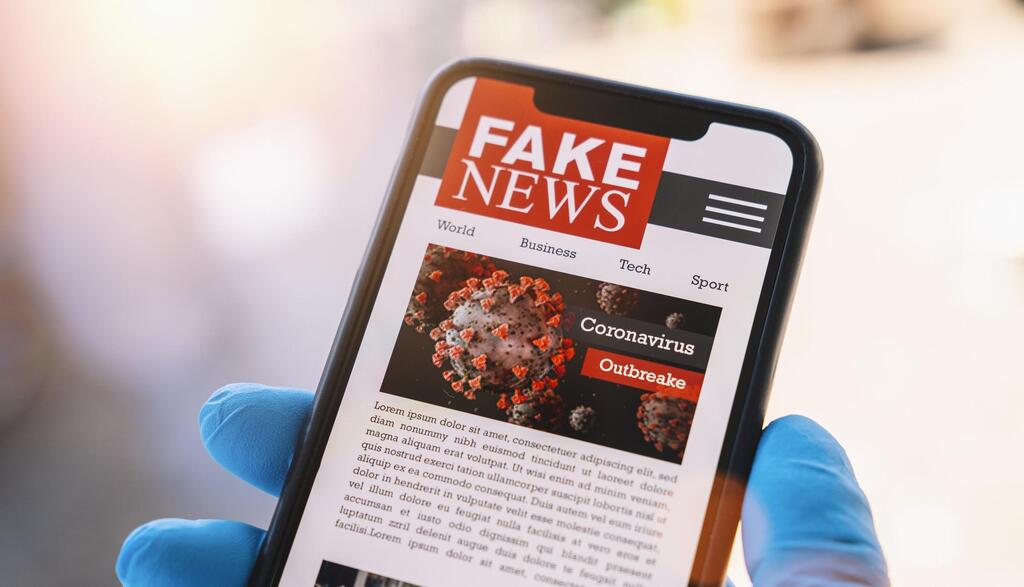Getting your Trinity Audio player ready...
A study on the internet and Wikipedia usage habits among Israeli users reveals several conclusions that could be perceived as concerning. The study, to be presented at a Wikimedia Israel conference marking the 20th anniversary of Hebrew Wikipedia at Reichman University on June 9, indicates that a significant portion of respondents report high exposure to fake content, with the issue being particularly prevalent among teenagers. Half of all respondents acknowledged having encountered fake content, a figure notably high among youth.
The survey, conducted by Wikimedia Israel, highlights several troubling statistics regarding fake content online – defined as either false or biased information. Teenagers report extensive exposure to such content.
When exposed to fake content, most individuals do nothing, with only a few warning their close contacts. Half of the Israeli public is concerned that AI tools already rely on fake content and might exacerbate the issue. Conducted in May 2024, the survey sampled approximately 500 Jewish adults aged 18 and older, 150 Jewish teenagers aged 13-17, and about 100 Arab respondents aged 18-40.
This pattern of concern is consistent across all respondents and even more pronounced among teenagers. The only notable difference is that Arab respondents are more likely to actively warn their close contacts about fake content. Most respondents view the issue of fake content as significant for future generations and are worried about biased content. While the concern about AI tools is relatively high, it is notably lower among Arab respondents. The reasons for this discrepancy are unclear and not addressed in the study.
Fake and biased content pose challenges for Wikipedia due to the platform's decentralized and community-driven nature. Since any user can edit content and create entries, it is easy to alter information.
Recently, Hebrew Wikipedia administrators discovered that several editors had created fake accounts to politically bias content. These rogue editors were identified by the community and tools available for managing the service, and their accounts were blocked. However, this incident underscores the inherent challenges of Wikipedia.
Regarding this incident, Wikimedia Israel responded: "The keys to managing Hebrew Wikipedia are in the hands of the volunteer community, the editors of Wikipedia, who set policies and make decisions about content and community members. The content oversight system has proven effective and reliable over the past 20 years, enabling, among other things, the detection of sock puppets. The global Wikimedia Foundation provides tools and a team that supports the community, and Wikimedia Israel assists and supports the community according to its needs."
Despite this, Wikipedia is still considered the second or third most reliable source among the population after "official" information sources. According to the survey, Wikipedia ranks second among most Jewish respondents and teenagers and third among the Arab sector. However, most Wikipedia readers noted that they encountered information needing correction, though most did not correct it. Most respondents across all sectors said the site usually provided the information they sought. Nonetheless, there are differences among sectors: teenagers generally found the information they were looking for on the site, but more respondents from the Arab sector indicated that Wikipedia often did not provide all the information they were seeking.
Artificial intelligence also significantly impacts information consumption. AI tools have notably influenced knowledge consumption on Wikipedia, though less so among the representative Jewish sample compared to other sectors. A higher percentage of respondents from the Arab sector reported switching entirely to consuming knowledge via AI tools. Nevertheless, Wikipedia remains the primary site used by about 90% of the population, with around 60% using it at least once a week. Usage frequency among the different sectors is relatively similar, with no significant gaps.
Michal Wender-Schwartz, CEO of Wikimedia Israel, stated: "Especially in light of the war, Wikimedia Israel places paramount importance on raising awareness of the fight against fake content by ensuring the creation of free, reliable, and credible content online. The conference highlights the central contribution of Wikimedia Israel in this area, proud to be among those at the forefront of efforts to maintain a digital space free of fake content in general and reliable content on Wikipedia in particular. This value underpins the foundation of all the association's activities."



